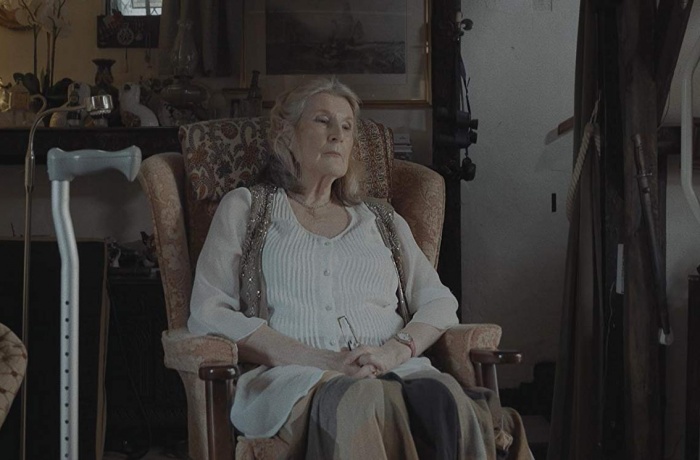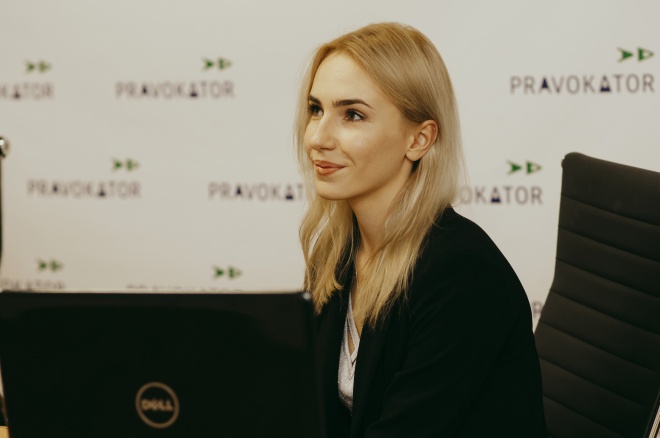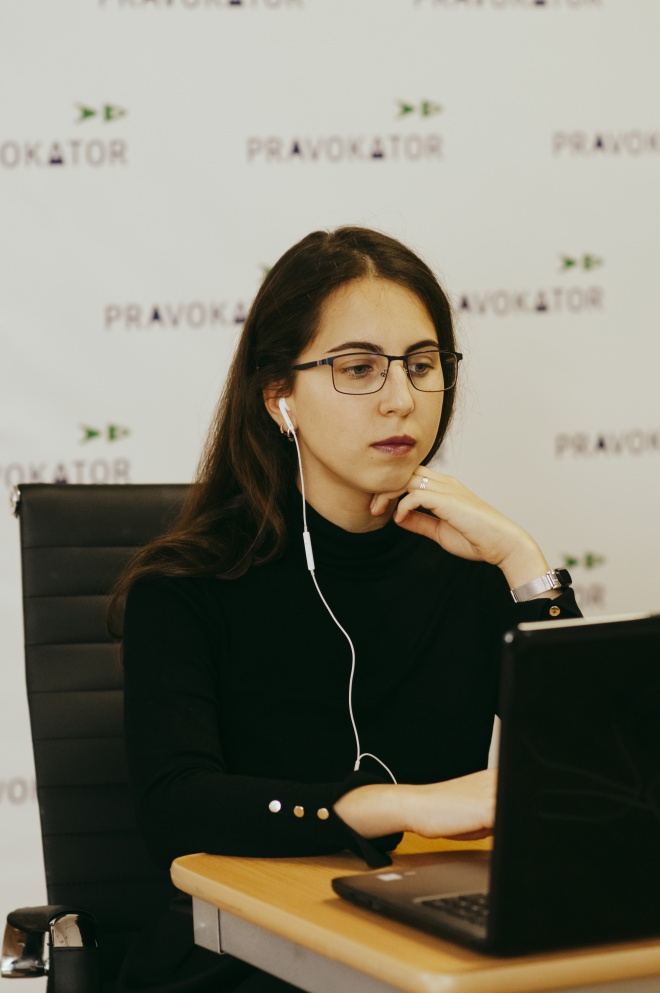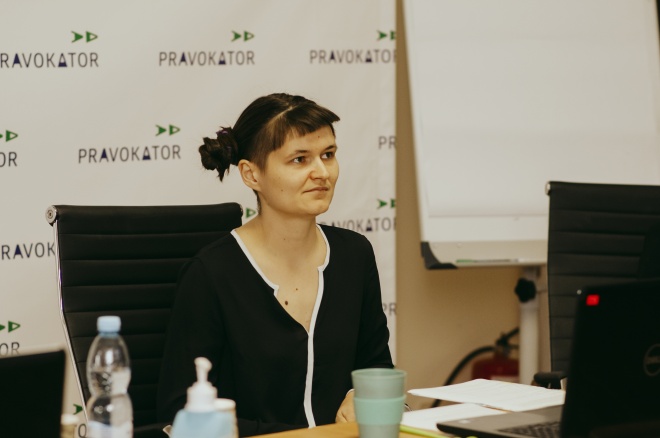The right to a good death in Ukraine
The right to a good death in Ukraine

As a part of the Travelling Docudays UA, there was a screening of The Good Death in the Lviv Region. The film tells the story of Janet, who has muscular dystrophy and decides to die by euthanasia. The screening was followed by a discussion with the sociologists Iryna Radiuk, a researcher in the field of death studies; Bozhena Burdio, who studies the burial norms and practices for those who commit suicide; and the human rights advocate Yosh, the manager of the Feminist Workshop. Yosh shares the thoughts articulated during the discussion and contemplates what needs to happen for a death to be good.
Death is an interesting but silenced topic. The older we get, the more frequently we think about our own death, funeral and what will be remembered of us after our life ends. The desire to be buried with dignity affects the quality of living our lives, because death is their integral part. Unfortunately, it is sometimes hard to find someone to talk to about death, but after the screening of The Good Death in Lviv, we were in a good company for discussing death, suicide and euthanasia.
According to Iryna Radiuk’s observations, the taboo around the topic of death does not mean that people do not want to talk about it, they just need an occasion for having this conversation: “When I was conducting my research, I saw that the respondents were actually happy to talk to me about the experience of burying their family members [...]. They wanted to talk it out, to speak about the problems they had faced: pressure from relatives, difficulties in communicating with municipal companies, or the general feeling of uncertainty.”

The topic of suicide is even less discussed. But the key to the conversation about suicide can be to expand our ideas about this phenomenon. “Sociologists do not look at who people that commit suicide are, but how society sees and perceives them,” notes Bozhena Burdio. “Sociologists define three kinds of suicide: anomic, altruistic and egoistic. In The Good Death, we see an egoistic suicide that aims to soothe the pain of the film’s protagonist.” Anomic suicide is suicide caused by a person’s disorientation in society, their loss of social connections. Someone capable of suicide of this kind usually feels lonely, cannot find like-minded people or things in common with others in their culture.
Each kind of suicide is perceived differently by society: egoistic suicide is socially condemned, while altruistic suicide is glorified. For instance, the death of a soldier who throws himself in front of bullets to protect others is considered to be heroic. This person is buried with honors and not stigmatized, although they could have decided to die in full awareness. Marginalized people’s death often isn’t seen as a tragedy, and people can accuse them of wasting their lives. In turn, the death of celebrities is mourned by thousands. Iryna Radiuk notes that the deaths of Lady Diana or Michael Jackson were followed by suicide waves.
But to what extent can legalization of euthanasia increase the number of suicides? And how justified are fears of its popularization?
Euthanasia is a procedure to end the lives of incurably or terminally ill people who experience incesant mental and/or physical suffering due to their illness. Obviously, people mostly want to live long and happy lives, and availability of an easy death does not encourage the will to die. Even living in suffering is often preferred. In the Ukrainian society, there is a powerful discourse of suffering, and it is seen as noble to live in constant struggle. Then what is the reason for the fear that normalizing someone’s wish to die in difficult circumstances popularizes suicide? Can legal euthanasia be a “temptation” for those whose lives are unhappy and who doubt the attractiveness of suffering? Maybe we unconsciously realize how many people are suffering and living unhappy lives? The available data can confirm it: a third of the population live on wages that are lower than the actual living wage, and confidence in the future is one of the priority values for Ukrainians.
But then what makes people who have to suffer from an incurable illness hold on to this life: the fear of stigmatization or of an unsuccessful suicide attempt? Iryna Radiuk emphasizes that those who make a failed suicide attempt face an enormous burden of condemnation, and this, of course, does not help improve their life after the attempt.

Bozhena Burdio draws attention to another, equally important question: who is responsible for deciding if someone’s suffering is sincere and not excessive, if it is unbearable and unfair. There is a possibility of doing harm with a premature death, because there is still hope that the person will be cured or get significantly better. In this case, we should keep in mind how much society can help the person to ease their suffering, for instance, with mental health therapy or medication. Maybe legalizing euthanasia can help lend a helping hand to those on the brink. For instance, as we can see in The Good Death, before the procedure of assisted suicide (a version of medical help for incurably ill patients) in Switzerland, the patient talks to a doctor for a long time, and the doctor helps analyze if there are ways to improve their condition. And only when it becomes clear that the patient cannot be helped, the decision about death is made.
A government that commits to ensuring affordable health care has to provide the procedure and mechanism of euthanasia, and the moral and ethic questions that assess if the person’s choice is right or wrong can be taken care of by other institutions. This service is provided in cases when the government cannot provide any ways to alleviate someone’s suffering.
One of the reasons behind social concerns about the legalization of euthanasia is that it would slow down the development of health care and the search for new medicines. Because if you can just kill all terminally ill people, why would you come up with new medicines? So the introduction of the “good death” procedure must be integrated in health care programmes in a way that would balance between the general human needs for the development of medicine and personal rights. We must admit that humanistic and human rights ideals often diverge from the goals of science. In the interests of the latter, inhumane experiments can be conducted, and testing of the new treatment regimens can contradict the will of the ill person.
According to the euthanasia bill developed by attorney Yana Tryniova, having an incurable illness that causes incessant physical and/or mental suffering is considered to be such a situation. At the moment, Ukraine does not consider a person’s suffering to be a cause for providing help with voluntary death. The bill “On ensuring the human right to dignified end of life” has been submitted to the Verkhovna Rada three times, but it has not been considered by it even once.

Biopolitics and the way our bodies are disciplined also play a part in our relations with the state. Bozhena Burdio draws attention to this, citing Michel Foucault [1]. In particular, society’s attitude towards suicide is shaped through constant repetition of certain burial rituals. If those who commit suicide are buried separately or deprived of traditional religious rites, this disciplines society to maintan life despite everything. Essentially, the euthanasia procedure is supposed to regulate the relations between two parties only: patients and doctors. The latter bear the responsibility for a procedure that can be interpreted as murder, so the process must be organized to avoid mistakes.
At the same time, a law on euthanasia can open the possibility of abuses for commercial profit by medical institutions and personnel. While considering the legalization of euthanasia, the rate of criminal offiences in Ukraine, particularly black market organ trafficking, should be taken into account. But this question, rather, brings us back to solving the problem of justice and crime prevention. Limiting human rights in order to fight crime is not a democratic way to solve the problem.
The question of legalizing euthanasia raises a number of social issues. A discussion about the procedure and its introduction should not close these issues, but rather encourage us to solve them. As it provides the right to a good death, the government should direct resources to the development of health care, improvement of service, pay attention to solving social issues, and maintain dignified standards of living by all means, so as not to encourage easy death but, on the contrary, to motivate people to live long lives. As we move towards ensuring equal rights and opportunities to diverse people, we have to develop mechanisms of sensitivity to everyone’s needs and ideas about happiness, no matter how their worldview differs from the generally accepted one, instead of measuring each person up to abstract norms and passing sentences to those who are a little different.
Text: Yosh
______________________________________
-
Michel Foucault, The Birth of Biopolitics: Lectures at the Collège de France, 1978–1979. — New York: Palgrave MacMillan, 2008.